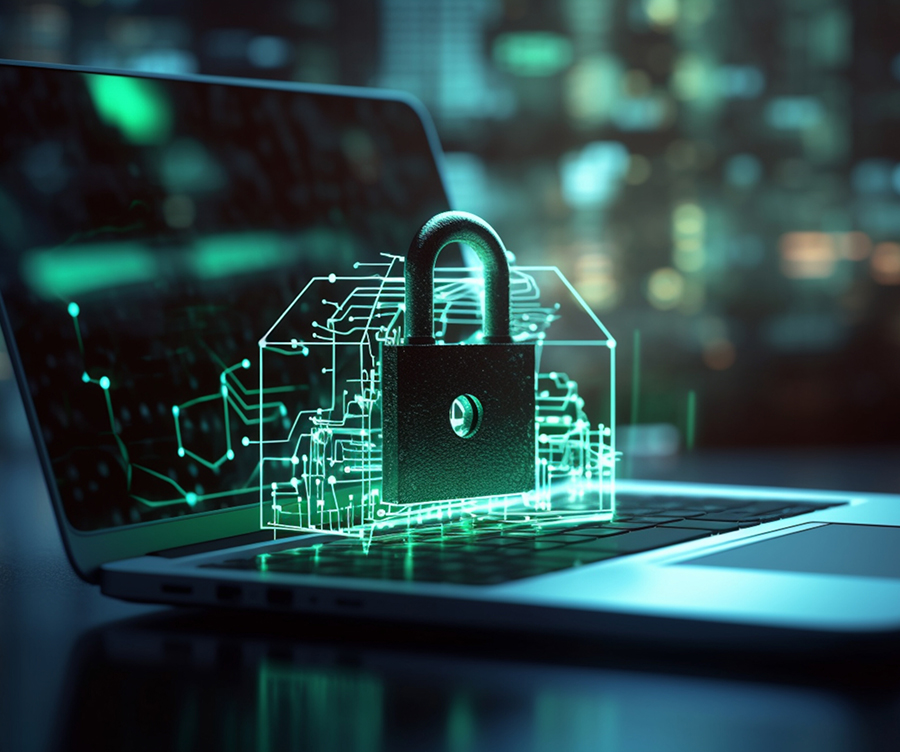
.* AI-Powered Cybersecurity: Safeguarding Networks in the Digital Age.* AI-Powered Cybersecurity: Safeguarding Networks in the Digital Age As technology advances at an unprecedented pace, so too do the threats to our digital security. Traditional cybersecurity approaches are no longer sufficient to combat the sophistication and evolving nature of cyberattacks. Artificial Intelligence (AI), with its unparalleled ability to analyze vast amounts of data and identify patterns, has emerged as a game-changing force in the cybersecurity domain. The Role of AI in Cybersecurity AI algorithms can process and analyze enormous volumes of cybersecurity-related data, including network logs, threat intelligence, and incident reports. By leveraging machine learning and deep learning techniques, AI systems can recognize patterns and make informed decisions in real-time. This enables them to: * Detect and classify threats: AI algorithms can identify anomalous patterns, suspicious activities, and known threats with a high degree of accuracy. * Predict and prevent attacks: By analyzing historical data and identifying vulnerabilities, AI systems can predict potential attacks and take proactive measures to prevent them. * Automate incident response: AI can automate tasks such as incident detection, containment, and remediation, freeing up IT teams to focus on more complex tasks. Benefits of AI-Powered Cybersecurity Implementing AI-powered cybersecurity solutions offers numerous benefits for organizations, including: * Increased threat detection accuracy: AI algorithms can sift through vast amounts of data and identify subtle anomalies that may be missed by human analysts. * Faster response times: AI-enabled systems can detect and respond to threats in real-time, minimizing the impact on business operations. * Reduced workforce strain: By automating repetitive and mundane tasks, AI allows IT teams to focus on higher-value activities that require human expertise. * Improved compliance: AI-powered cybersecurity systems can help organizations meet regulatory compliance requirements more effectively. * Enhanced security posture: AI continuously monitors and analyzes the network, identifying potential vulnerabilities and recommending mitigation measures. Challenges and Future Trends While AI offers immense potential in the field of cybersecurity, there are also challenges to address: * Data privacy and bias: Concerns exist about the potential misuse of personal data used for AI training and the possibility of bias in AI models. * Cybercriminals adapting: Attackers may develop new techniques to evade AI-powered detection systems. * Human oversight: While AI plays a crucial role, human oversight and decision-making remain essential to ensure ethical and appropriate cybersecurity practices. Looking forward, the integration of AI in cybersecurity will continue to evolve. Advancements in natural language processing, quantum computing, and blockchain technology are expected to further enhance AI’s capabilities. By embracing these cutting-edge technologies, organizations can protect their networks and data with greater precision and efficiency in the face of ever-evolving cyber threats. Conclusion AI-powered cybersecurity is transforming the way organizations safeguard their digital assets. By leveraging the power of machine learning and deep learning, AI algorithms can detect threats, predict attacks, and automate response, empowering organizations to enhance their security posture in the rapidly evolving digital landscape. As AI continues to advance, the future of cybersecurity holds immense promise for further innovation and protection.
Posted inNews